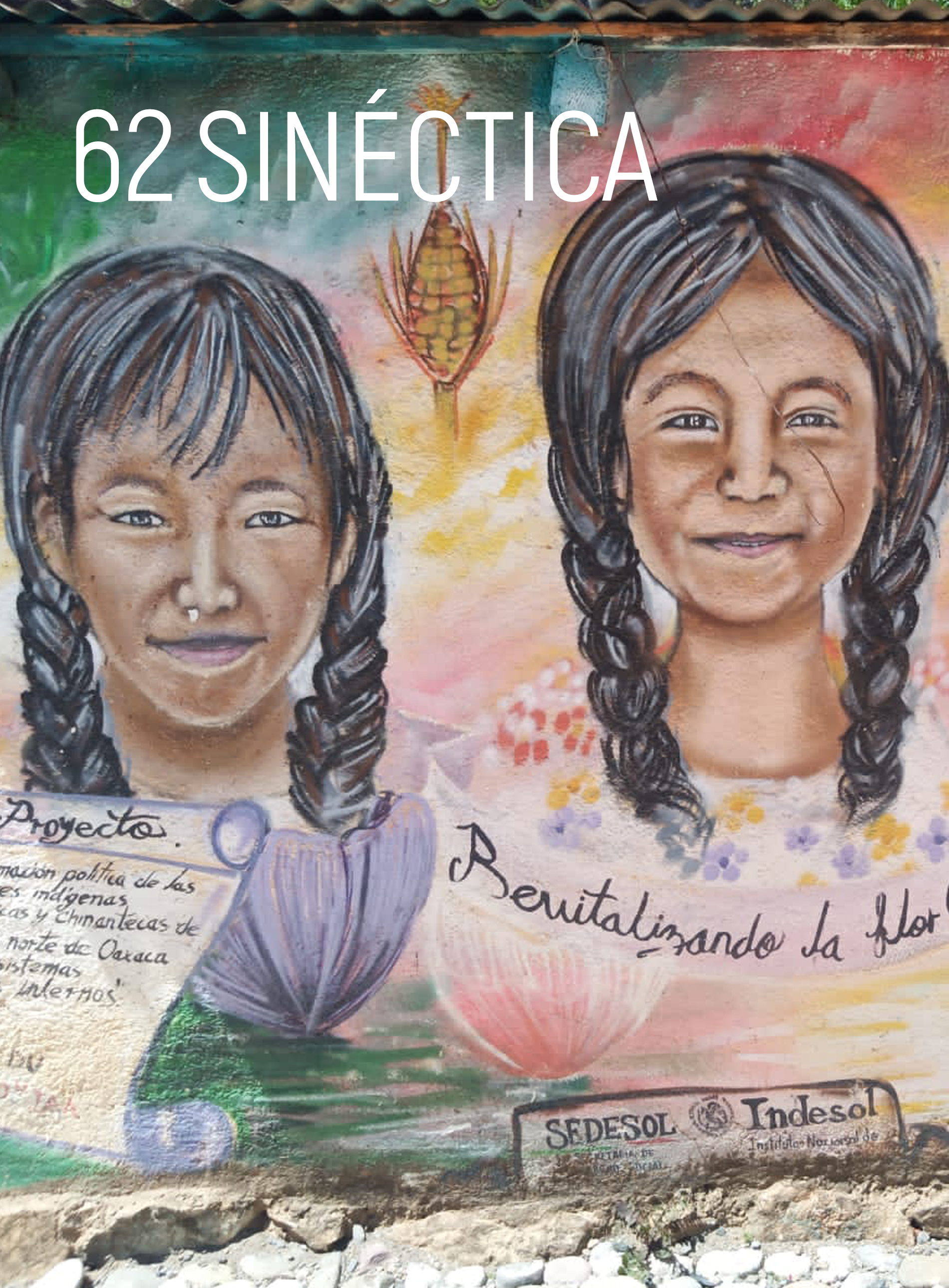Academic knowledge and interculturality in sanchiu, by Dina Ananco, wampís poet
DOI:
https://doi.org/10.31391/S2007-7033(2024)0062-004Keywords:
Dina Ananco, Sanchiu, academic knowledge, Wampís intellectual, interculturalityAbstract
This article studies the poetry book Sanchiu (2021), by Dina Ananco (Bagua, 1985), a young Peruvian intellectual and poet, representative of the Amazonian Wampís culture, based on the concepts of academic knowledge and interculturality. The objective is to demonstrate that the poetic voice is configured as an Amazonian indigenous intellectual who expresses the cultural and intercultural tensions of her community. The methodology of the work is based on the hermeneutic analysis of the poems "Atumsha urukarmetsu/I do not know you" and "Mikut", in relation to the interviews given by the author about her poetic practice that allows her to position herself specifically as a Wampís intellectual. In this sense, the role played by Dina Ananco is fundamental to revalue the Wampís culture and language, which is one of the central purposes of the writers who are part of the so-called "literature written in native languages". Our reading is that the writing practice of the Wampís poet and intellectual seeks to install her culture in the intercultural dialogue, for which she projects in her work a poetic voice that reflects on the internal and external tensions of the local culture from her position as an Amazonian indigenous intellectual.
Downloads
References
Ananco, D. (2021). Sanchiu. Pakarina Ediciones.
Albaladejo, T. (2013). Retórica cultural, lenguaje retórico y lenguaje literario. Revista de Estudios Filológicos, núm. 25. https://www.um.es/tonosdigital/znum25/secciones/estudios-03-retorica_cultural.htm#:~:text=La%20Ret%C3%B3rica%20cultural%20como%20dimensi%C3%B3n,los%20cuales%20consolidan%20dicho%20car%C3%A1cter
Álvarez, C. y Gómez, L. (2022). Poesía contemporánea escrita por mujeres en lenguas originarias. En C. Anka, G. Cáceres y D. Ananco. Warmikuna/Nuwa/Mujer. Antología de poesía contemporánea escrita por mujeres en lenguas originarias (pp. 9-14). Pakarina Ediciones. https://issuu.com/redliterariaperuana/docs/antologia-en-lenguas-originarias-29-05
Arias, A., Cárcamo-Huechante, L. y Del Valle, E. (2012). Literaturas de Abya Yala. Winter, vol. 43, núm. 1, pp. 7-10.
Arte y Cultura (2021, 23 de octubre). Dina Ananco: “Escribir en lenguas originarias es hacer justicia por nuestra cultura”. Ojo Visor. Magazine digital de cultura y actualidad. https://ojovisor.lamula.pe/2021/10/23/dina-ananco-escribir-en-lenguas-originarias-es-hacer-justicia-por-nuestra-cultura/rosanalopezcubas/
Cabel, A., Agüero, M. L. y Arbaiza, F. (2023). La poesía amazónica peruana y su postindigeneidad: una lectura de las tensiones del yo poético de Sanchiu de Dina Ananco. Chasqui; Tempe, tomo 52, núm. 1, pp. 125-142.
Club de Poetas Jóvenes Originarios del Perú (2020, 28 de julio). Estará con nosotros en I Primer Festival de Poesía en Idiomas Originarios la Dina Anacondo Ahuananchi. [Publicación de estado]. Facebook. https://www.facebook.com/573075426434659/photos/pb.100026704545922.-2207520000./937629973312534/?type=3
Comando Plath (2021). Dina Ananco. Mapa de Escritoras Peruanas. https://comandoplath.com/biografia-dina-ananco/#1619452206236-0900e3b7-c241
Espino, G. y Mamani, M. (2022). La literatura indígena amazónica. Aproximaciones a una cartografía. Letras, vol. 93, núm. 138, pp. 54-74. https://doi.org/10.30920/letras.93.138.5
Espezúa, R. (2016). Las consciencias lingüísticas escriturales en la literatura peruana. Tesis de doctorado en Literatura Peruana y Latinoamericana, Universidad Nacional Mayor de San Marcos, Facultad de Letras y Ciencias Humanas, Lima, Perú.
García-Bedoya, C. (2004). Para una periodización de la literatura peruana (2.a ed.). Fondo Editorial de la Universidad Nacional Mayor de San Marcos.
Martos, M. (2021). Dos territorios verbales. En D. Ananco. Sanchiu (pp. 9-10). Pakarina Ediciones.
Ministerio de Educación (2014). Documento nacional de lenguas originarias del Perú (versión resumida). Ministerio de Educación. http://www.ugelcasma.gob.pe/files/Data_EIB/Diversos_materiales_EIB/Documento%20Nacional%20Lenguas%20Originarias%20del%20Per%C3%BA.pdf
Moya, R. (2009). La interculturalidad para todos en América Latina. En L. E. López. Interculturalidad, educación y ciudadanía. Perspectivas latinoamericanas (pp. 21-56). Plural Editores.
Páucar, C. (2023, 26 de febrero). Dina Ananco Ahuananchi: “Hasta ahora no he podido caminar en Lima con mi tarach”. La República. https://larepublica.pe/domingo/2023/02/19/dina-ananco-awananchi-hasta-ahora-no-he-podido-caminar-en-lima-con-mi-tarach-367042
Ríos, M. E. (2014). Escritoras indígenas del México contemporáneo. Fuentes Humanísticas, año 28, núm. 49, pp. 47-60. https://core.ac.uk/download/pdf/83080084.pdf
Stocco, M. (2022). Más allá del paradigma monolingüe: la autotraducción literaria en lenguas indígenas en Argentina. Mutatis Mutandis, vol. 15, núm. 1, pp. 8-26. https://doi.org/10.17533/udea.mut.v15n1a02
Stocco, M. (2021). Autotraducción y retraducción en la poesía mapuche: las versiones al mapuzungun de Leonel Lienlaf y Víctor Cifuentes. Anclajes, vol. XXV, núm. 1, pp. 181-195. https://doi.org/10.19137/anclajes-2021-25113
Zapata, C. (2008). Los intelectuales indígenas y el discurso anticolonialista. Discursos y Prácticas, vol. 1, núm. 2, pp. 113-140.
Downloads
Published
Issue
Section
License
Copyright (c) 2024 Sinéctica

This work is licensed under a Creative Commons Attribution-NonCommercial 4.0 International License.
This work is licensed under a Creative Commons Attribution-NonCommercial 4.0 International license.
Authors who publish in Sinéctica agree to the following terms:
The authors retain copyright and grant the journal the right of first publication of the authorized work simultaneously under a Creative Commons Attribution License, which allows others to share the work as long as both the authorship of the work and the initial publication in this journal are acknowledged.
Authors may enter into additional separate contractual agreements for non-exclusive distribution of the published version of the journal (e.g., publishing in an institutional repository or a book), with acknowledgement of initial publication in this journal.
Authors are allowed to publish their work in institutional repositories or on their own website before and during the submission process, as it may generate productive exchanges, as well as earlier and greater citation of the published work.
Explanatory note: As of 2017 Sinéctica is governed by the Creative Commons Attribution Non-Commercial 3.0 International License, a version that standardizes licenses internationally.
Articles published between 1992 and 2016 are covered by a Creative Commons Attribution-NonCommercial-NoDerivatives 4.0 International license, which allows a work to be shared and distributed non-commercially and with acknowledgement of the author, but prohibits modification of the original creation.






















